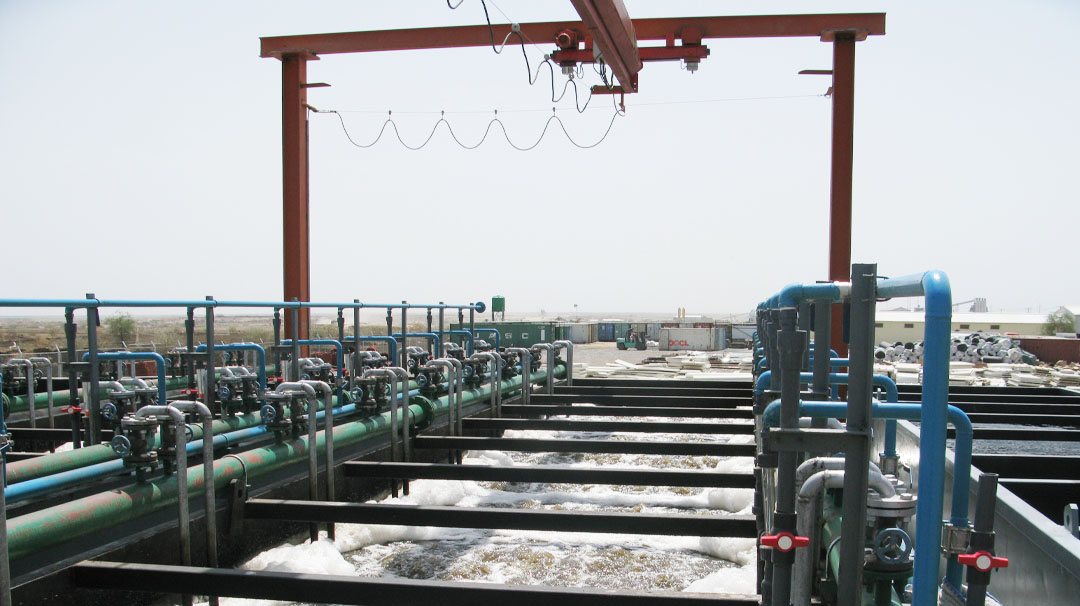
As a wastewater treatment plant operators of MBR membrane technology, it is important to understand how it may function during harsh weather conditions. One such weather condition is cold weather, which can make many people wonder if MBR membranes will freeze, and how this will affect their operation. Well, today, we will explore this topic in detail to help you make an informed decision when selecting the right MBR membrane supplier.
MBR membranes are made of thin polymer films cast onto a support layer. The material of the membrane is susceptible to thermal forces, making it vulnerable to freeze damage. So, the answer to the question is yes, MBR membrane can potentially freeze in cold weather. The degree of impact depends on the duration and severity of the freezing temperatures. Ice formation can cause a physical obstruction to the pores of the membrane, leading to a decrease in permeability and an increase in trans-membrane pressure differential.
To prevent MBR membrane freeze damage, various methods can be utilized. One approach is to apply insulation blankets and heat tracing systems to the membrane tanks and piping systems. The temperature of the membrane tank and feed lines need to be kept above the temperature of the saturated solution of the wastewater, which is typically around 0°C. If the temperature of the membrane tanks and plumbing drops too low, the heat tracing system will activate automatically and keep the temperature above freezing point.
Another effective solution is to use antifreeze agents in the feed tank, which can lower the freezing point of the process water enough to prevent freeze damage. Propylene glycol or ethylene glycol, for example, are commonly used antifreeze agents due to their low toxicity and high resistance to microbial growth.
However, there are still a few things to consider when using MBR membranes in cold weather. Firstly, the water in the membrane tanks or pipelines may freeze, causing blockages and damage to the membranes. Secondly, sudden changes in temperature may cause thermal shock to the membranes, which may affect their performance and lifespan. Thirdly, the operational flux of MBR membranes may need to be adjusted to compensate for the change in water viscosity at different temperatures.
To overcome these potential issues, high-quality MBR membranes often utilize special additives or hydrophilic coatings to prevent water from freezing or fouling on the membrane surface. Some suppliers may also provide customized solutions that consider the specific needs of customers operating in cold weather environments. Jiangsu Peier Intelligent Technology Co., Ltd. provides not only MBR membrane solutions but also relevant support services to help customers overcome the challenges of low temperatures.
MBR membranes are designed to operate effectively under a range of weather conditions, including cold weather. While they may not freeze easily, it is still important to consider the potential issues that may arise, and select high-quality membranes that have been specifically designed to overcome these challenges. By doing so, customers can rest assured that their MBR membrane system will continue to operate effectively and efficiently in cold weather environments. Contact Jiangsu Peier Intelligent Technology Co., Ltd. for expert support in selecting and maintaining your MBR membrane system today.
Abuot Jiangsu Peier membrane
Jiangsu Peier membrane corp.,Ltd(Stock Code: 836744) was established in 2007 with a registered capital of 48 million Yuan, referred to as “Peier membrane industry”.
It is a high-tech enterprise focusing on the R&D, production, manufacturing and service of MBR flat sheet membrane products. Its Peier Product category as below:
- Flat Sheet Membrane Element
- Flat Sheet Membrane Element-Single Nozzle
- Flat Sheet Membrane Element-Double Nozzle
- Flat Sheet Membrane Element-3D Soft Support
- Flat Sheet Membrane Element-Renovated Membrane
- Flat Sheet Membrane Module
- Flat Sheet Membrane Module-Module-Single Nozzle
- Flat Sheet Membrane Module-Module-Double Nozzle
- Flat Sheet Membrane Module-2S(Double Deck)
- Flat Sheet Membrane Module-3S(High Flux)
- Flat Sheet Membrane Module-Mini Module
- MBR System
- MBR System-Laboratory Test Equipment
- MBR System-Pilot Equipment
- MBR System-Package System
Peier membrane always adheres to R&D and cooperation with well-known universities at home and abroad, such as Tsinghua University, Sydney University, Nanjing University of technology, Changzhou University and Jiangnan University.
It is the editor in chief of the national industry standard HY/T252-2018 “submerged flat membrane element for water treatment”.
At present, it has 6 invention patents, 46 new utility patents, 1 appearance patent and 4 software works.